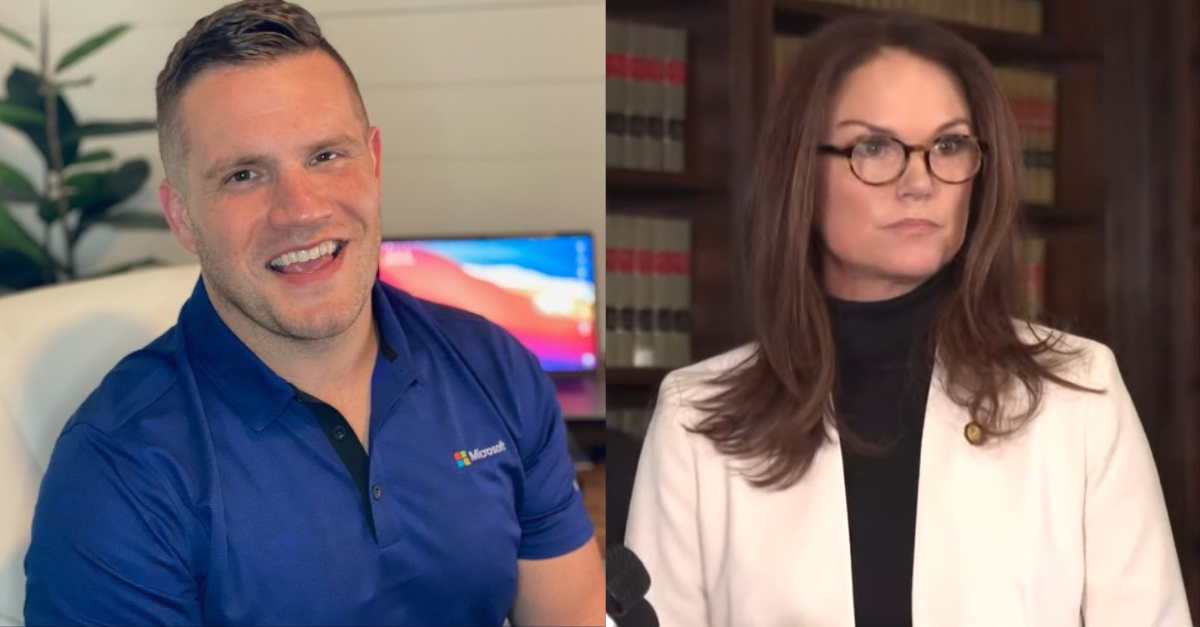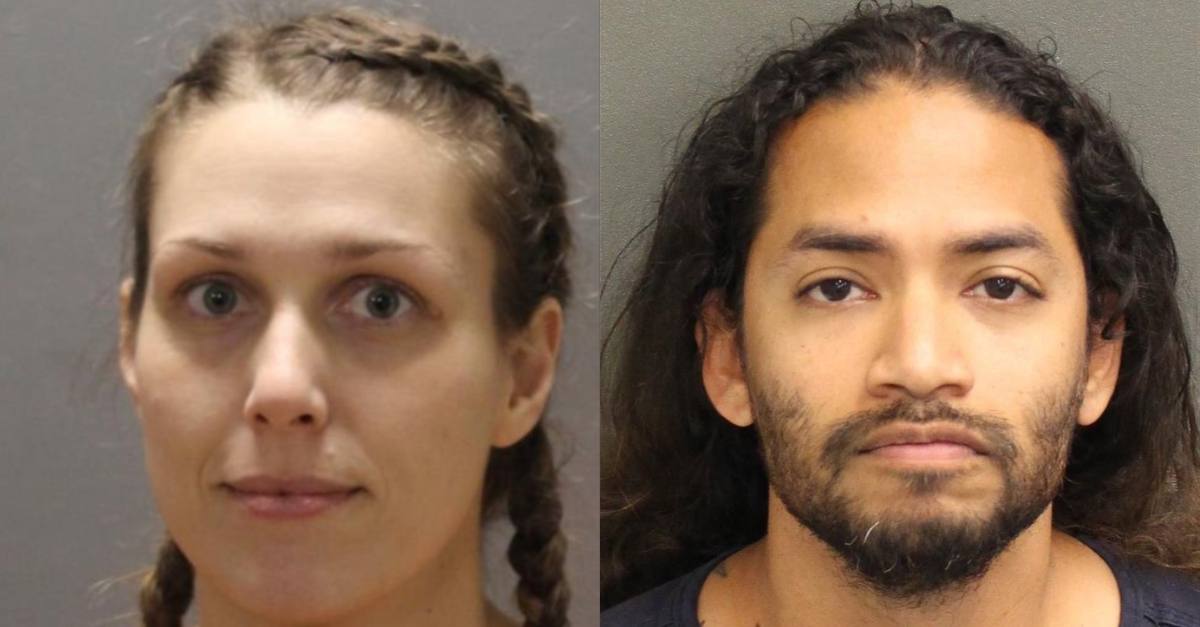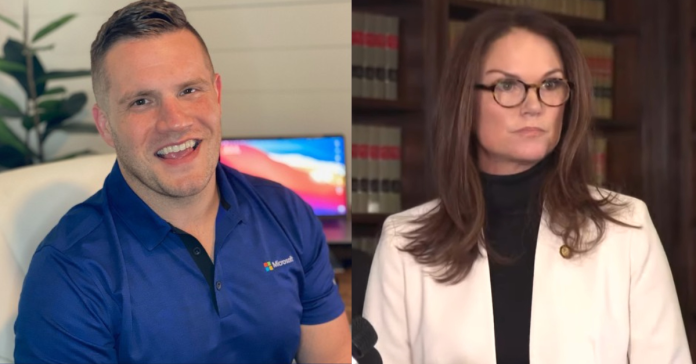
The defense of Mario Enrique Fernandez Saldana wanted to oust 4th Judicial Circuit State Attorney Melissa Nelson, who is pictured at right, and her office from prosecuting the murder of Microsoft executive, Jared Bridegan, who is pictured at left. (Image of Bridegan: Jacksonville Beach Police Department; screenshot of Nelson in a March 16, 2023, press conference about the case: WTLV/WJXX)
The future of a Microsoft executive’s ambush murder took its next step on Monday, as a judge assigned another judge to review whether prosecutors improperly got their hands on confidential communications between one of the defendants and his legal counsel.
“Due to the sensitive nature of the privilege Defendants have asserted and in abundance of caution, the undersigned will not conduct a review of the substance of the contested materials,” wrote Judge London M. Kite. “Upon due consideration, the Court requests the Honorable Chief Judge Lance M. Day to appoint a Circuit Judge to review the contested materials to determine whether the contested materials contain attorney-client privileged information.”
Mario Enrique Fernandez Saldana, 35, the defendant in question, had filed in November to kick out the State Attorney’s Office for the 4th Judicial Circuit.
He and his estranged wife, Shanna Lee Gardner, 36, are charged in Duval County, Florida, with plotting to murder her first husband, Jared Bridegan, 33. Bridegan died in an ambush on Feb. 16, 2022, when he encountered a tire blocking a dark area of Sanctuary Boulevard, according to Jacksonville Beach police. He stepped out of the vehicle and was shot as his 2-year-old daughter from his second wife was in the back seat.
Fernandez Saldana’s former tenant, Henry Tenon, 63, was charged as the gunman, pleaded guilty to second-degree murder, and agreed to cooperate in the state’s case.

Shanna Lee Gardner and her second husband, Mario Enrique Fernandez Saldana, plotted the murder of her ex-husband, Jared Bridegan, police said. (Mug shots: Duval County Jail)
In the November filing, Fernandez Saldana’s defense claimed that the state mishandled communications from his electronic devices and got their hands on confidential communications between the defendant and counsel.
According to the motion, prosecutors assured the defense and court they would assemble a “taint team” to redact all privileged communications and send the rest of the data to the state. By Sept. 27, however, Jesse N. Dreicer, an attorney for Fernandez Saldana, believed a prosecutor had referenced privileged information.
“Specifically, the assigned [assistant state attorney] told undersigned counsel she found incriminating evidence against the defendant, and that this evidence consisted of a Word document titled ‘Confidential Communications,”” the motion stated.
The defense had advised Fernandez Salanda to write “Confidential Communications” in the subject line of any and all emails to them and legal staff. They now worried that prosecutors got their hands on emails between them and their client. According to the defense motion, the state answered by asserting their taint team removed all communications between the defendants and firms.
“The discovery we discussed was not attached to an email, did not show any attorney names or emails, and did not contain attorney-client discussions,” a prosecutor wrote, according to the defense motion. “The taint agent forwarded to us for review, and based on what he advised, I determined that nothing would suggest it was privileged at the time.”
Prosecutors made a special web-based portal using Nextpoint electronic discovery software because of the voluminous discovery. The extensiveness of the material is why the defense only gained access to the portal on Oct. 20, the motion stated.
“Much to the dismay of defense counsel, upon reviewing the discovery provided via the portal, counsel discovered many of the email communications between Mr. Fernandez and his attorney,” they wrote.
All, if not most, of these emails featured the subject line “Confidential Information,” they wrote.
The defense also asserts they found emails between Gardner and her Florida attorney, Hank Coxe, and at least one phone call between her and her Washington attorney, Andrew Wagley.
In their response, state prosecutors called the defense’s demand improper and without lawful grounds.
They put the blame on “a third-party vendor’s inadvertent and brief oversight in uploading a massive amount of data to an eDiscovery platform without labeling the confidential communications.”
“The oversight, which involved uploading a few emails and one text between the Defendant and his attorney(s), was an unintentional act by the third-party vendor,” they said. “The prosecutor, once notified, observed the oversight quickly, and consistent with her ethical duties, contacted the defense teams to alert them to the oversight and immediately disabled the platform to ensure none of the emails or the text were reviewed by anyone. No one from the prosecution team or the State Attorney’s Office reviewed any privileged emails or texts.”
Both sides agreed for a court to review the contested materials on Feb. 16, filings state.
For now, Kite has stayed the proceedings until Day handles the private review of the relevant document and makes a determination about the case.
Have a tip we should know? [email protected]

